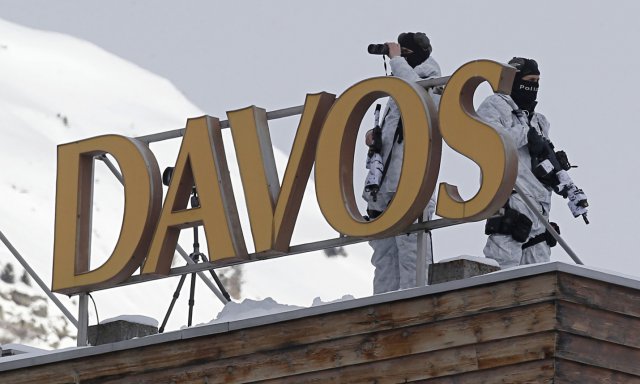Three BBC journalists have been questioned by Swiss police for breaching high-level security protocols by using a drone at the World Economic Forum in Davos last month.
The journalists, who are understood to have worked with the BBC’s chief business correspondent Linda Yueh, were briefly detained by Swiss authorities after they launched the unmanned aircraft in a strict no-fly zone.
Security at Davos was extremely tight, with 26 miles of secure fencing, 5,000 Swiss troops, and a 25-mile no-fly zone to protect the 2,500 world leaders, royals and dignitaries in attendance.
The BBC admitted the incident after it was approached by the Guardian on Monday. A spokeswoman said: “We can confirm that in Davos during the World Economic Forum a BBC team mistakenly took a drone into a no-fly zone area. Three members of staff were briefly questioned by police and it is still to be determined by the Swiss authorities if the BBC will pay a fine.”
The BBC has used drones to impressive effect recently, including to film the Auschwitz-Birkenau concentration camp to mark 70 years since it was liberated by Soviet troops.
But its experiment in Davos was considered a serious security breach at a time of heightened tension over a possible terrorist attack in mainland Europe.
The Davos conference took place from 21-24 January – just over a week after Islamist gunmen stormed the offices of the satirical magazine Charlie Hebdo and launched a three-day attack in Paris. Days later, raids by counter-terrorism officers in Belgium disrupted an imminent plot to kill police officers.
In Davos delegates including chief executives and government leaders had to pass through airport-style security to enter the restricted zone – and only after background checks had been carried out on every attendee.
Anxiety about a possible aerial attack was countered with a 25-mile no-fly zone restricting flights from neighbouring countries without authorisation. The Swiss air force also carried out surveillance over the Alpine town using helicopters and fighter jets.
Broadcasters and private individuals are turning increasingly to drones, as the cost of flying the aircraft falls. Their widening popularity has not been without incident, however. At the end of 2014 a helicopter-style drone almost collided with an Airbus A320 passenger plane as it landed at Heathrow.
In October 2013 the BBC trumpeted its use of the so-called “hexacopter” – a high-end drone with six rotors – and by February last year had developed three of the remotely-controlled aircraft in the World Service’s global video unit. It is not known whether a hexacopter was involved in the Davos incident.
In the UK, Civil Aviation Authority rules prohibit flying drones over crowds, 500m horizontally or 120m vertically from the pilot, and within 50m of a road or building unless its under the owner’s control.
Source: The Guardian

